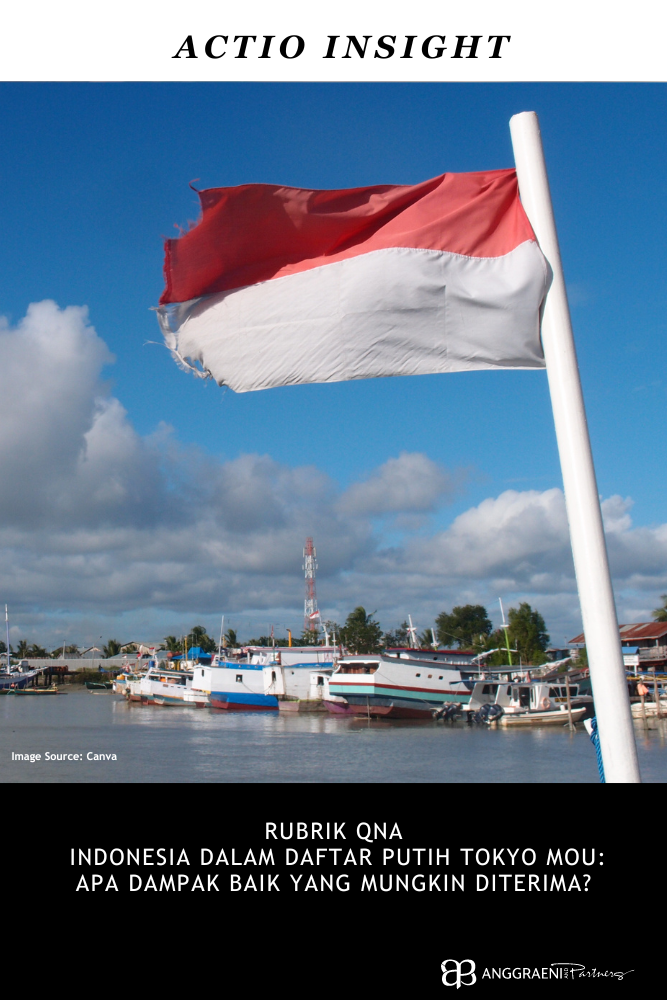- Home
- Capabilities
- ACTIO® Hub
- About Us
- Connect with Us
- AP Library
One of the main goals of the United Nations Sustainable Development Goals (“UN SGD”) is to eradicate poverty. Indonesia, as one of the countries participating in the G20, must be able to realize one of these goals. The 1945 Constitution of the Republic of Indonesia (“UUD 1945”) states that “the poor and neglected children are cared for by the state”.
One of the regulations that emerged as a response from the government to improve the welfare of the poor in a more planned, targeted, and sustainable manner was the establishment of Law Number 13 of 2011 concerning the Handling of the Poor (“Law for the Poor”).
The government’s responsibility in implementing this is to develop self-potential, food and clothing assistance, housing, health services, educational services, access to work and business opportunities, legal aid, and/or social services.
The form of handling the poor as referred to above can be done through empowering community institutions, increasing the capacity of the poor to develop basic skills and business skills, social security and protection to provide a sense of security for the poor, partnerships and cooperation between stakeholders, and/or coordination between ministries/agencies and local governments.
The government’s responsibilities in implementing the form of handling the poor based on the Law on the Poor are as follows.
First, Self-potential development is an effort to develop the potential that exists within the poor, including the mental, spiritual, and cultural aspects to improve capacity building. The central government and local governments are responsible for developing the self-potential of individuals, families, groups, and or communities which are
carried out through mental, spiritual, and skill guidance.
Second, food and clothing assistance increases food sufficiency, diversification, and adequate clothing.
Food and clothing assistance is regulated in the Law on the Poor, which explains that the government and local governments are responsible for providing sufficient food and clothing assistance.
Third, the provision of housing assistance is fulfiling the right of the poor to proper and healthy housing, in which case the government and local governments are responsible for providing housing services.
Fourth, the provision of health services is to meet the basic needs of the poor, which in this case, the government and local governments are responsible for providing health services.
This includes promotive, preventive, curative, and rehabilitative approaches where the financing of health services is carried out through a national insurance system.
Fifth, the provision of education services is designed to meet the basic needs of the poor in obtaining educational that is free of cost, of good quality, and without gender discrimination. Again, the central government and local governments are responsible for providing tuition assistance or scholarships.
Sixth, fulfilling the rights of the poor to decent work and business opportunity requires government and local governments to be responsible for providing access to employment and business opportunities.
This is carried out through efforts to provide employment information, provide training and skills facilities, increase access to micro-enterprise development, and/ or provision of capital assistance facilities.
Seventh, legal aid is the assistance given to the poor who have problems and conflict with the law. Legal aid is organized to represent the interests of citizens facing legal issues in defence of their rights inside and outside the court. Legal aid for the poor is provided in protection and legal consultation.
Eight, social services are the duty of the government and local governments. Here, there must be provision of social services including improving social functions and access to essential social services.
Quality of life, increasing the ability and awareness of the community in institutional and sustainable social welfare services, increasing social resilience in the community, preventing and dealing with the problem of poverty, and improving the quality of management of social welfare services to be provided.
With this Law on the Poor, it can be seen that the government and local governments must be responsible for efforts to eradicate poverty.
The ambitious goal is for poverty in Indonesia to be eliminated, thus achieving the UN SGD of No Poverty. To ensure that the government’s responsibility for handling the poor does not conflict with the Law on the Poor, it is necessary to strengthen cooperation between the government, local governments and social institutions to facilitate and guide policies, programs and activities that empower, assist and provide means to meet the basic needs of the poor.
In addition, it is recommended that the government, local government and social institutions be able to assume their responsibilities through a regional approach because the number of people classified as poor, is still significant and scattered in rural, urban and coastal areas, as well as small islands. (FMN/TWK)


